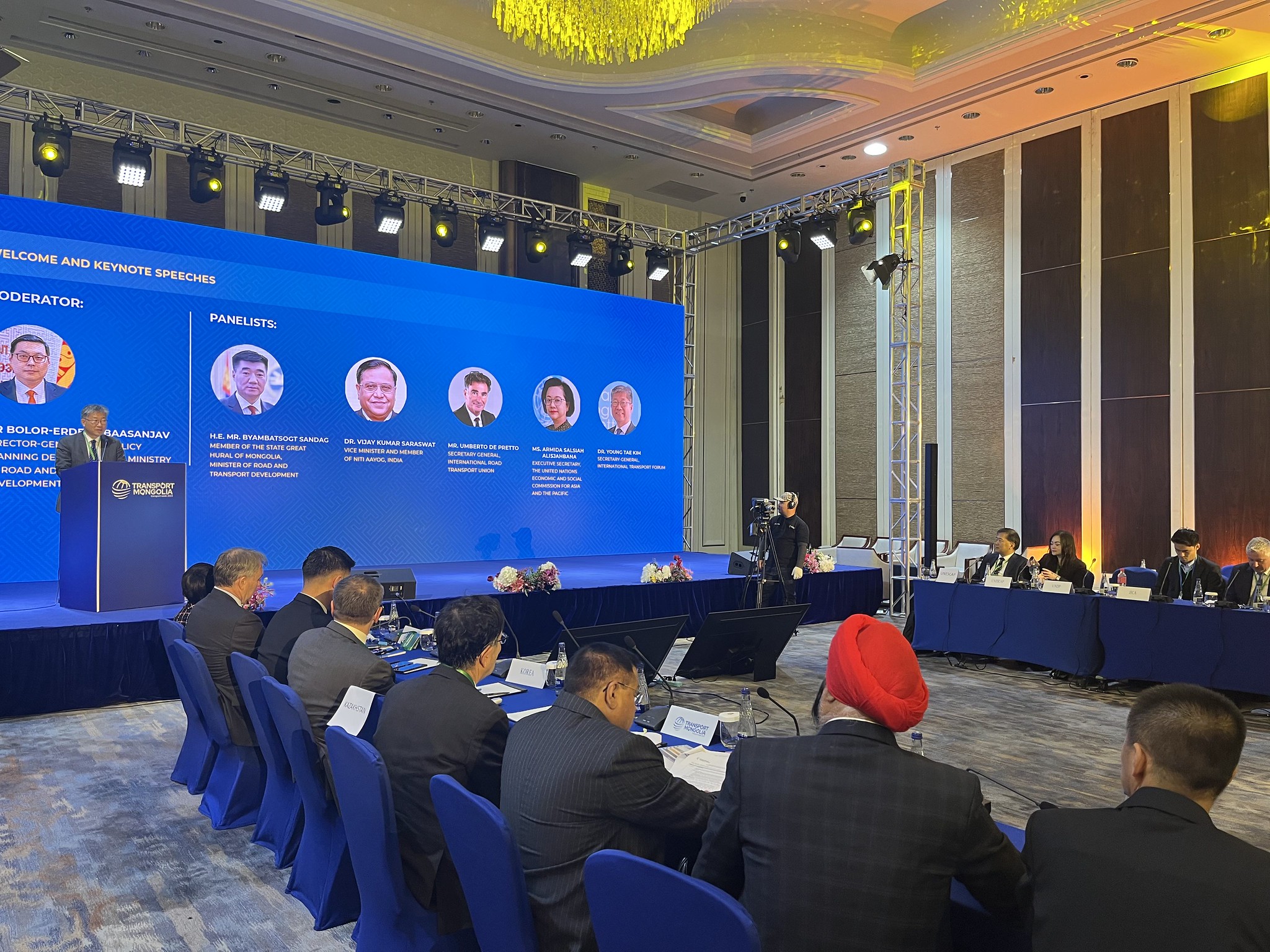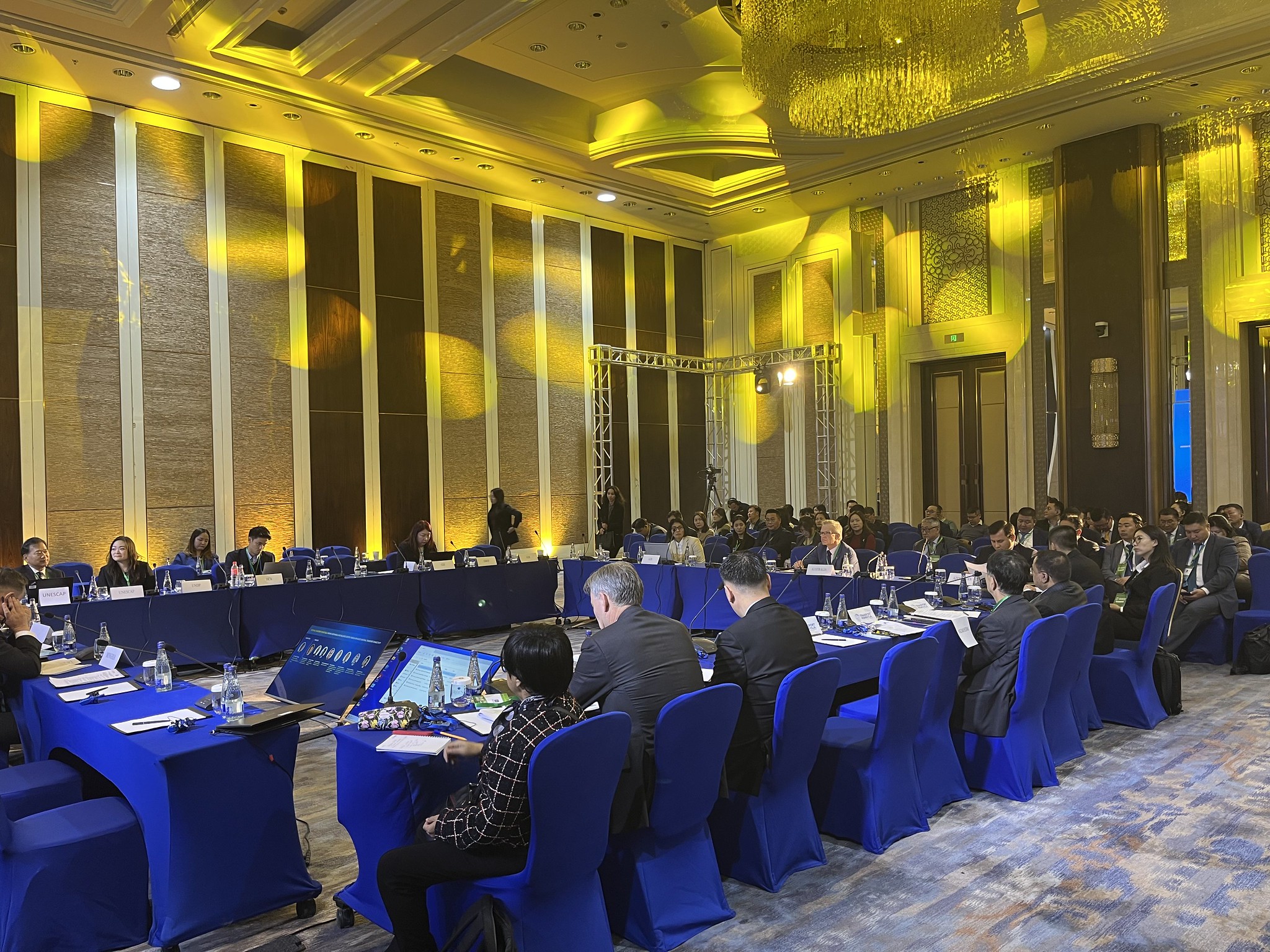IRU’s Secretary General presented key measures to address connectivity gaps in Asia and beyond at ITF’s regional high-level conference in Mongolia.
As the foundation of international supply chains, transport is the lifeblood of global trade, underpinning all economic activities.
While trade patterns across the region are evolving rapidly, road transport is allowing landlocked countries to become land-linked, connecting them to their neighbours and global markets.
At the second International Transport Forum Regional High-Level Dialogue for Asia in Ulaanbaatar, Mongolia, IRU Secretary General Umberto de Pretto said, “Emerging economies are, encouragingly, making up an ever-greater share of global freight volumes, but inefficiencies are creating bottlenecks at borders. Trade facilitation tools, such as TIR, were developed for exactly this purpose: to streamline border operations.”
“With internationally harmonised digital tools, such as eTIR and e-CMR, we can maximise transport and transit procedures. How can we have the audacity to talk about sustainable development goals, underpinned by economic development, social equity and environmental protection, when our drivers and goods are stuck at borders, not for hours, but for days, and sometimes even weeks.”
“While investments in infrastructure, vehicles and hardware are important, indeed, the road transport industry appreciates every millimetre of infrastructure built, the biggest return on investment comes from soft infrastructure, that is changing existing procedures. Also, we need to focus on people and their professional qualifications, which are vital to safe and sustainable transport,” he added.
IRU’s latest global driver shortage found that over three million truck driver jobs are currently unfilled in just 36 countries analysed. This number is expected to top seven million by 2028.


